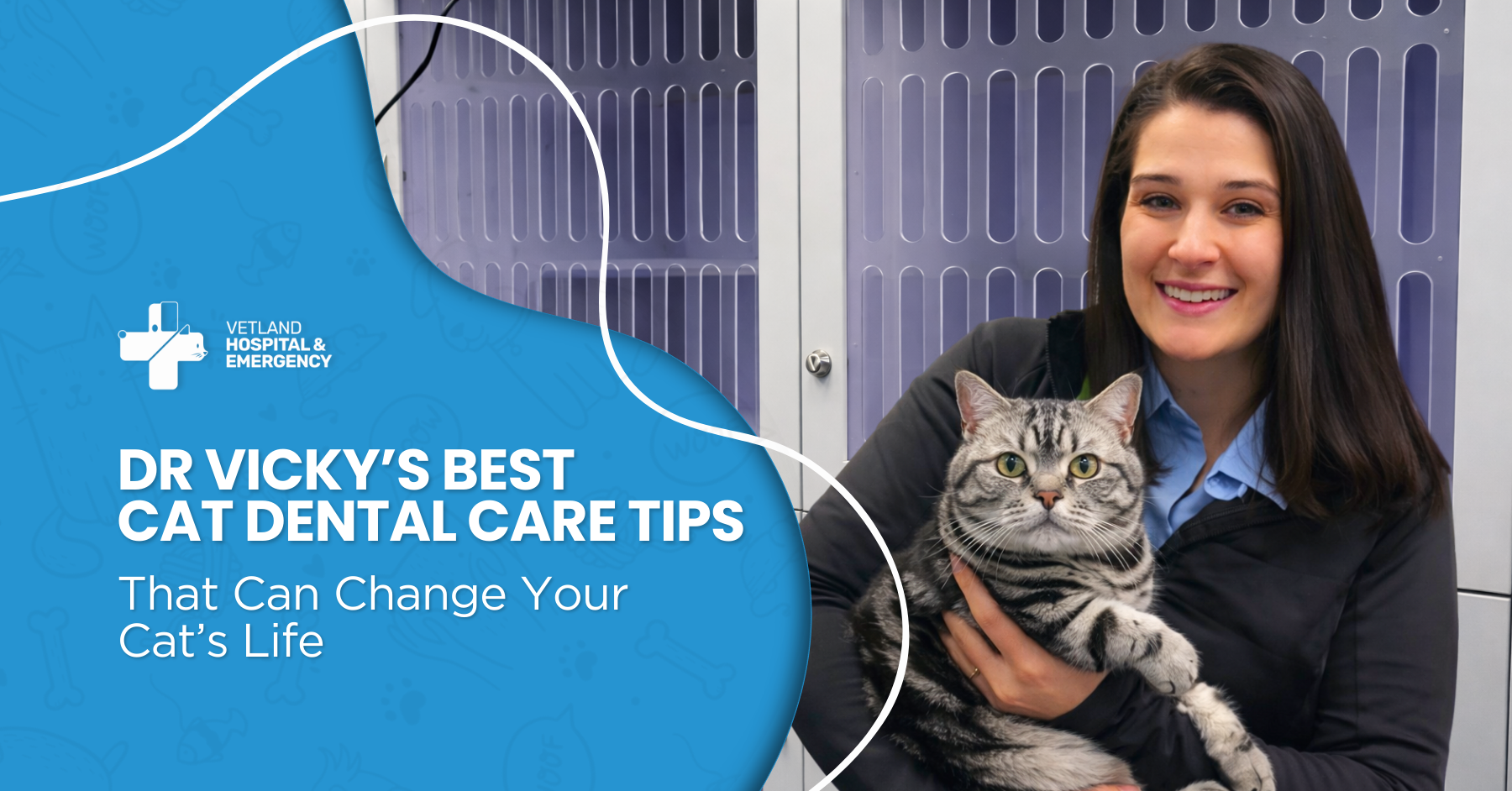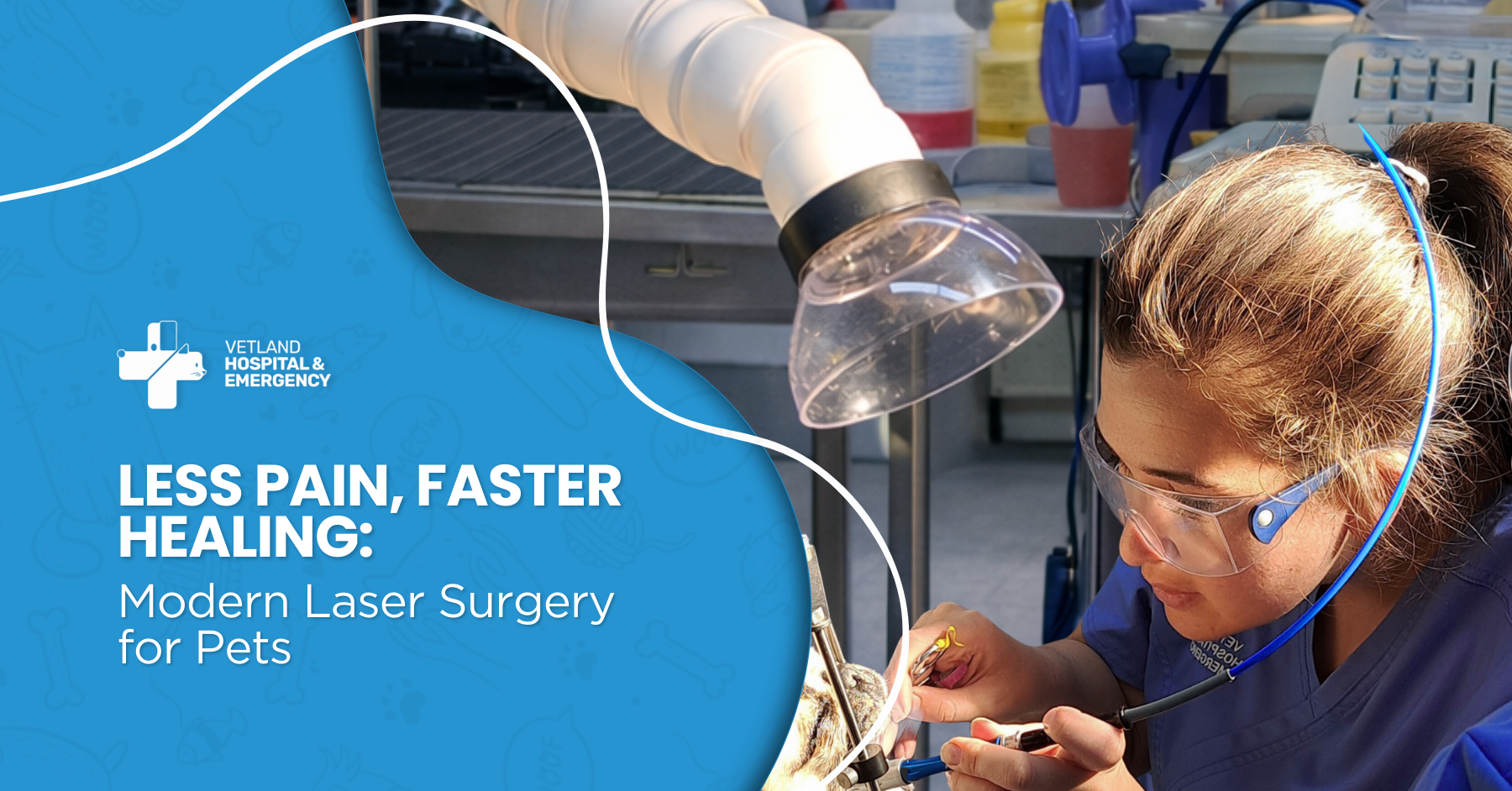Dr Vicky’s Best Cat Dental Care Tips That Can Change Your Cat’s Life
Your cat may be hiding dental pain right now, would you know it? Cat dental care matters for one reason—it hurts.There are no obvious symptoms, but...

Welcome to Australia! We are world-renowned for our sun, amazing beaches and, of course, some of the most fearsome wildlife on the planet! Our bedfellows include juicy funnel web spiders, prehistoric crocodiles and the world’s most venomous snake. Yes, even in suburban Melbourne, with its weather temper tantrums, is still rife with some of the most dangerous snake species you’ll ever find.
Our team often treat both dogs and cats suffering after an encounter with a snake. Our local venomous species are common, and when they cross paths with curious pets – it can be an absolute disaster. Once upon a time, we would strictly see snake bites only in spring and summer, with a very definite ‘off’ season as they hibernate. However, in more recent years, we are certainly seeing the ‘snake season’ extended and is way more unpredictable.
The most common snake envenomations we will treat are tiger and brown snakes, less commonly red-bellied black snakes.
It can be quite random. In the suburban areas of VetLand, dogs are often finding snakes in local parks and walking tracks. There are many cats living an outdoor lifestyle in the VetLand area who have also been bitten by snakes, presumably whilst hunting along train lines or in park lands.
And then we see plenty of pets travelling from more regional areas of the region, families living on acreages, where snakes are literally in your backyard.
We will often see dogs bitten on the face, as they investigate the noisy danger noodle. And cats may be quite sore on the foot as they look to give it a tippy-tap with their paw.
If you’re a cat lover, please – and I can’t emphasise this enough – go to the effort to provide a safe, enclosed outdoor area for your cat. Having access to the outside world is absolutely critical for their mental welfare, however – not only is it unlawful for your cat to roam outside your property, but it is super dangerous for them. Not just from a snake perspective, but we see dog injuries, cat fight wounds and road trauma every day – and that’s not being dramatic. It’s just not a safe situation for your feline friend.
For your dog, during snake seasons, keep them on a leash when it’s time to walk, especially in park lands and walking trails. Avoid going for walks at dusk when snakes are most active. Joining your community Facebook groups is a great way to know when snake season has started as they will often post snake sightings.
Cleaning up your yard of debris and trash as snakes will often hide here for a bit of shade. If you have chickens, or a bit of a rodent problem, be especially cautious to keep things clean as these are snake magnets.
Don’t panic. Don’t follow the snake, don’t try and photograph it – or worse yet – don’t kill it! It’s dangerous for you, certainly not fair for the poor snake and completely unnecessary.
Firstly, we are able to identify the snake based on the circulating venom in your pet’s urine or blood, and secondly – it doesn’t matter anyway! Our antivenin is multi-valent – this means it will neutralise venom from multiple snake species.
Next up – don’t suck the venom out of the wound. This is an old wives tile that will leave you with a furry mouth and your pet ultra confused.
The most important thing is to keep your pet calm, if you can lift them, carry them to the car and drive immediately to your closest vet.
Even if you are unsure if the snake bit your pet, or your pet seems fine, I absolutely categorically don’t recommend waiting to see if they develop symptoms. When signs develop, they hit HARD. It’s life threatening and can leave your pet in a coma, or worse. The sooner we are able to give the vials of antivenom – the better your pet’s prognosis for recovery.
Booking an appointment with your veterinarian has never been easier. Use the form below to search for our available practitioners at a time that best suits you.
If you have an emergency, we urge you not to book a vet appointment using this booking form and instead contact us at (03) 8595 6655 so that we can organise to see you as soon as possible.

Veterinarian

Your cat may be hiding dental pain right now, would you know it? Cat dental care matters for one reason—it hurts.There are no obvious symptoms, but...

What makes someone choose a career full of uncertainty, constant learning, and never-ending challenges?

Gentle. Precise. Designed for Comfort.